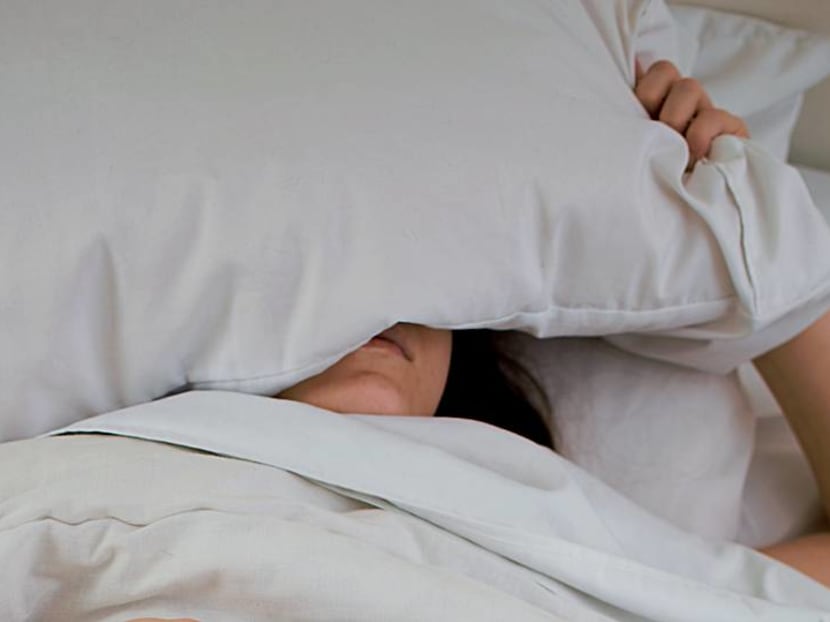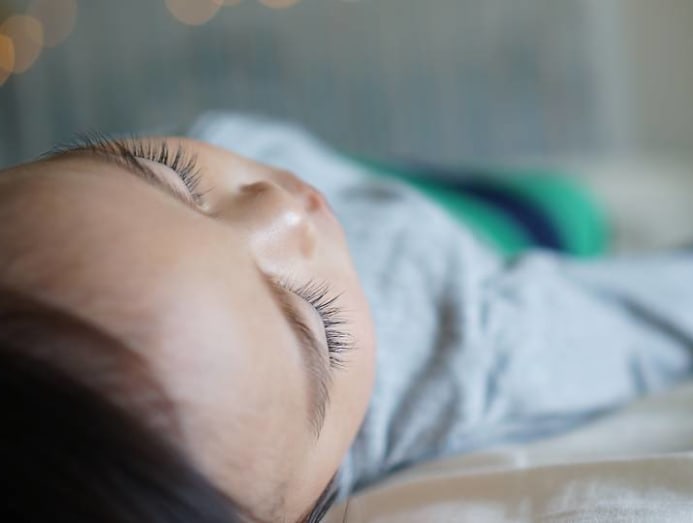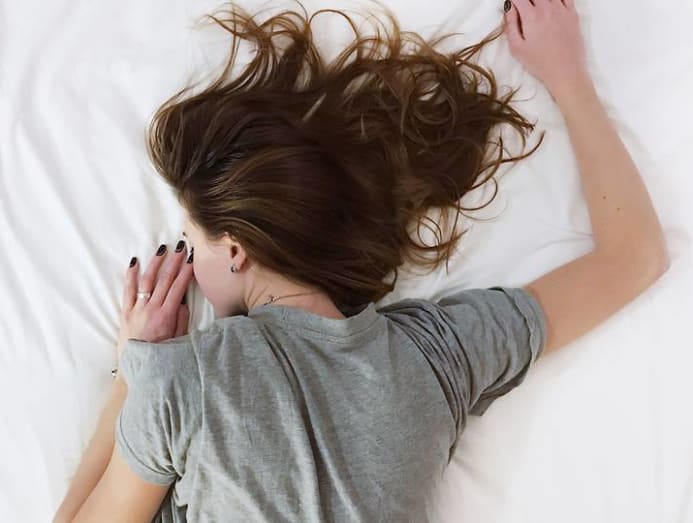commentary Wellness
Commentary: Does it really get harder to sleep after a certain age?
A good night’s rest is proving more elusive than ever due to multiple factors, says a sleep expert.

A woman sleeping. (Photo: Unsplash)
SINGAPORE: It’s 4am and you’re tossing and turning in bed, trying to squeeze in a few hours of sleep before another long day of work and meetings.
It’s a tale often too familiar. According to latest research, Singaporeans now average just 6.8 hours of sleep a night, with as little as one in five adults (21 per cent) feeling well-rested when they wake up and three in 10 (28 per cent) even feeling that they are getting less sleep than they were a year before.
And Singapore is not alone – half of the 13 countries surveyed in Philips’ global sleep study average less than 7 hours of sleep per night, including Japan (6.3 hours), the United States (6.5 hours) and Australia (6.9 hours).
While the study shows COVID-19 may have exacerbated the problem – with many kept up by worries over their work, family, financial responsibilities and even the pandemic itself – falling and staying asleep is an issue most adults will face at some point in their lives, especially peaking when we hit our 30s.
READ: Commentary: We’re sleeping more since the pandemic, but we aren’t feeling rested
With research showing the extent to which sleep impacts us day-to-day – from our health, to our relationships, productivity and even our appearance – getting the prescribed seven to nine hours should be a priority for all, but the key to a good rest seems to still be shrouded in mystery and misunderstanding.
The starting point for curing the nation’s sleep woes has to be finding out what is causing them.
Modern stressors and lifestyle factors are contributing to the problem. In fact, our latest poll in Singapore found worry and stress rank as the top reason for Singaporeans’ lack of sleep (31 per cent) and use of mobile devices such as phones and tablets as a reason for one in ten Singaporeans who have sleep trouble (13 per cent).
But a plethora of other influences – from sleeping environment to diet, exercise and health conditions – can also play a part.
READ: Commentary: Immobility during COVID-19 and its effects on our sleep, physical activity and well-being
DOES SLEEPLESSNESS WORSEN AS WE AGE?
Besides lifestyle and environmental factors, our sleep needs change over our lifetime too. Children and adolescents require the most amount of sleep, while adults and seniors gradually tend to get less sleep over the years.

While studies have tracked sleep issues emerging from the age of 11 or 12, these most significantly spike from one’s early 30s and persist across our lifetimes, progressively worsening into our grey years.
An inevitable aspect as we get older, sleep issues arise mainly due to the biological changes within our body, where our circadian system and sleep homeostatic mechanisms that regulate our sleep cycles become less robust and deteriorate, leading to sleep issues that creep in.
Combined with work-related stresses and disrupted sleep schedules from starting a family, it’s little wonder those in their 30s and 40s suddenly find themselves facing a sleep crisis and unable to regain the restful sleep they had in their younger years.
READ: Commentary: Cure to burnout requires a pervasive culture of rest
Progressing towards the senior years, our bodies also have an impaired ability to register the need for sleep, hence it’s not uncommon for older adults to be early risers and sleep less than the recommended seven to nine hours of sleep per night.
These can also be tied to the lifestyle changes with ageing and retiring from work. Without the structure of a working day, older adults often have less structured sleep schedules with flexible bedtimes and wake-up times, as well as daytime naps, all of which can cause a poorer overall quality of sleep.
Medical illnesses, medications, circadian rhythm disturbances, depression and primary sleep disorders all become more prevalent with age and can contribute to increasingly poor sleep as we get older.
READ: Commentary: Not enough time? Transforming work and sleeping better in a digital world
TAKING ACTIVE STEPS TOWARDS BETTER SLEEP
The good news is that solutions to many of these common causes of sleep trouble are within easy reach – starting with creating a relaxing sleep environment and establishing a fixed bedtime routine. Having an early dinner, taking a cool shower, reading a book, listening to soothing music and investing in comfortable pillows and bedding are all fundamental parts of a good bedtime routine.
Experts also agree on the importance of banishing devices from the bedroom at least 30 minutes before bedtime, reducing caffeine and alcohol consumption during the day and using meditation to clear the mind.
However, if all of these tried and tested techniques don’t work, there could be something more serious going on.

It is thought that as many as one in three Singaporeans suffer from a little-known condition called obstructive sleep apnea (OSA), and 91 per cent of these have not even been diagnosed.
OSA is characterised by repeated interruptions in breathing throughout the sleep cycle. These interruptions, called apneas, are caused by the collapse of soft tissue in the airway, which prevents oxygen from reaching the lungs.
This results in loud, persistent snoring, witnessed pauses in breathing, and choking or gasping for air during sleep. Such symptoms wake the individual up periodically during the night, resulting in an interrupted night’s rest and daytime fatigue and sleepiness the following day.
Fear and lack of understanding appears to be hindering individuals from getting checked out for this condition. Philips’ research suggests one in five Singaporeans are afraid to take a sleep test as they don’t want to know if they have OSA, and 17 per cent believe it is not necessary to be treated for it.
READ: Why snoring loudly could be linked to heart disease, hypertension or worse
READ: Commentary: Sleeping more is essential to performing well at work and school
This perception needs to change, as sleep apnea can have serious health implications. Left untreated, sleep apnea can have short and long-term health risks, including high blood pressure, heart disease, stroke, Type 2 diabetes and driving or work-related accidents due to drowsiness.
Encouragingly, one unintended positive consequence of COVID-19 appears to be that Singaporeans are becoming more comfortable in seeking medical help for their sleep issues online.
Over half say the first time they had a telehealth appointment was during the pandemic and four in 10 Singaporeans say that they would be willing to seek help for sleep-related concerns in the future from a sleep specialist via telehealth services, although many have yet to do so.
As a society, we need to start taking our sleep much more seriously for our emotional and physical health. Understanding that problems with sleeping can be caused by underlying medical issues is a big step in the right direction.
Dr Tripat Deep Singh is Clinical Manager in Sleep at Philips ASEAN Pacific.





